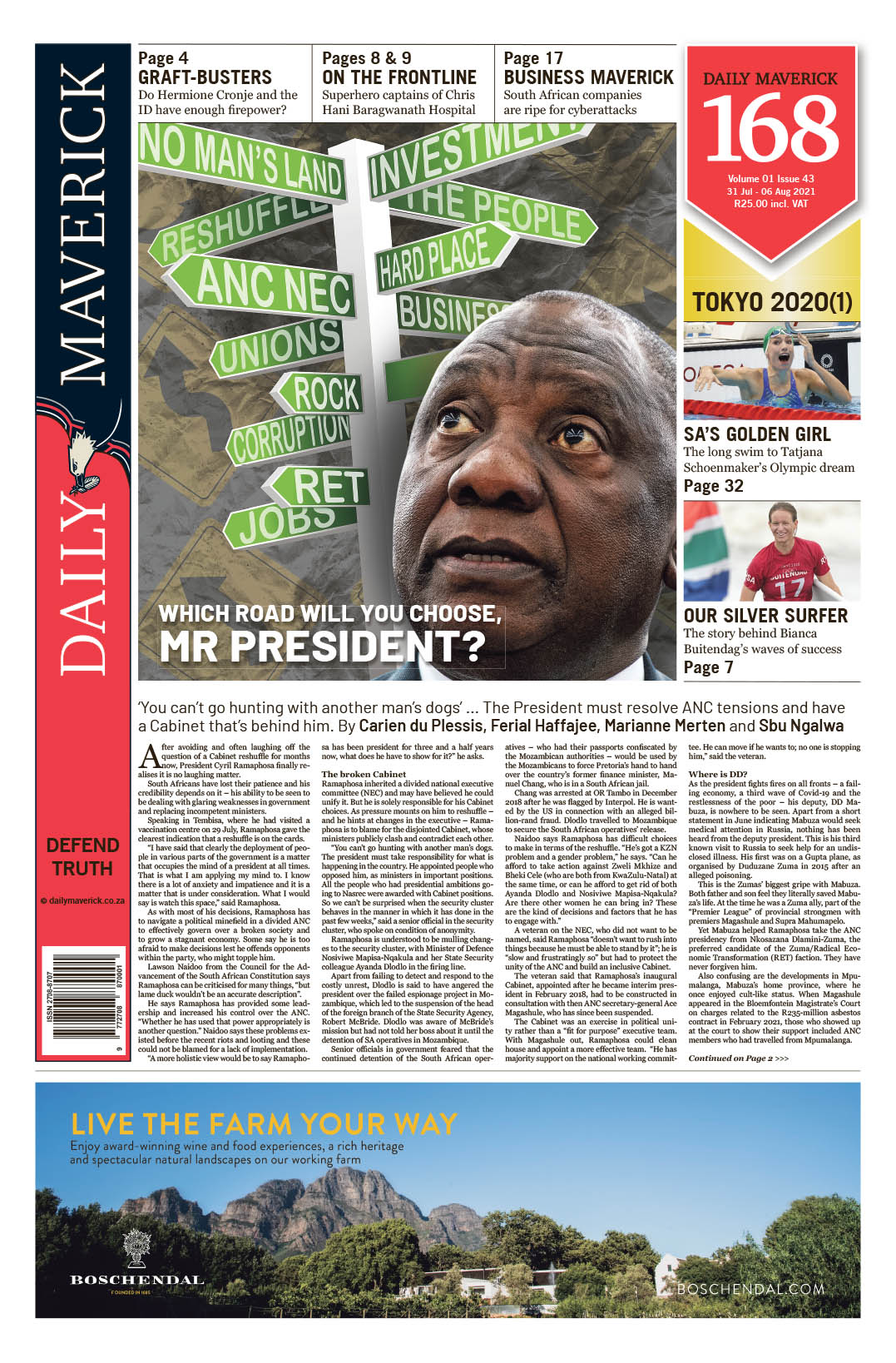First published in the Daily Maverick 168 weekly newspaper.
Two weeks ago, in the midst of the chaos and darkness that cloaked the country, I messaged my father to ask him how he was holding up. I didn’t expect the response he sent, which was simply but profoundly “I am traumatised”. My peers and I use or perhaps overuse the word “traumatised” for every stressor and inconvenience; a touch of mindless hyperbole to describe the everyday drama of our lives.
I had never heard my dad use the word before. From him it sounded like a new word with new meaning. Although I do not recall him labelling trauma as trauma, I do know that his life story is marked by significant traumas. You would be hard-pressed to find any black person, especially of my father’s generation and older, who does not know trauma. And it is even harder to find a black person from those older generations who understand their life stories through the paradigm of trauma. To them life was simply hard. You do not dwell on dissecting and labelling events in psychological terms. You somehow make no distinction between everyday life and trauma.
My father’s recognition and identification of this moment in our country’s life as traumatising reaffirmed to me the scale of what we are living through. At that moment he did not share the often-repeated black wisdom slogans such as the likes of “this too shall pass”. He did not minimise the moment by comparing it to the bevy of archival traumas.
The unfamiliarity of his response was a gut punch. But, oddly, it gave me a sense of progress in what seemed to be a hopeless moment. As our country was set ablaze, my dad’s vulnerability became the sign that telegraphed change. My father’s vulnerability to me in a single text encapsulated the progress we have made generationally in our family and perhaps as a country.
Our recent history has amassed its own neopolitical traumas that have impacted us in ways we cannot even begin to fully understand at this moment. The swerving and crashing of our democratic dreams is particularly traumatic because as black people we learnt to have this thing called hope. What they do not tell you is that hope sets you up for heartbreak.
This fresh political trauma further compounds the unresolved traumas of apartheid and colonialism. But what we have now that we did not have back then is the space to talk about our traumas. The language of vulnerability and mental hygiene are more en vogue than ever. It is no coincidence that I deepened my spirituality during the Zuma years and that I sought a career with deeper meaning and purpose in response to a malevolent presidency. It is no coincidence that I started writing during the Zuma years – it has been a therapeutic method of survival.
In their paper titled “Trump therapy: Personal identity, political trauma and the contradictions of therapeutic practice”, authors Eeva Sointu and David Hill examine the trauma caused by Donald Trump’s election and the politicisation of therapy in response to it. Their research reveals that “therapy provides a legitimate ground for self-management of feelings of political hurt; that this is seen as valuable for the formation of political communities of action and resistance”. Following Trump’s election, they observed a heightened prominence of emotion in the civic sphere and a greater public recognition of private suffering, with some experts noting that the opening up of the emotional realm in our civic and political lives and speaking the unspeakable have been important for allowing those with less power to make their experiences visible.
My WhatsApp and social media groups over the past few weeks have evidenced the opening of an emotional aperture among citizens as we ride out the turbulence of South African politics.
These communities and the intimate but physically distanced platforms we have created to check in on one another, to reaffirm our values, to put words to our fears and to acknowledge absurdities such as having to work in the midst of pandemonium and a pandemic have been my saving grace. Inasmuch as WhatsApp was used as a conduit for evil by instigators, for many South Africans it became a safe and creative space where people conspired to rebuild South Africa.
I can only hope that at this time the media mainstreams content that will provide mental and spiritual support. That we normalise therapy talk. That we deepen our linguistic skills to identify and embrace our political traumas. My father’s description of his emotions allowed me to understand him more than just as my father but as a fellow citizen. In sharing our heartbreak, we offered each other proof of our humanity at a time of brazen inhumanity. To me it was the bravest form of political expression. DM168
This story first appeared in our weekly Daily Maverick 168 newspaper which is available for R25 at Pick n Pay, Exclusive Books and airport bookstores. For your nearest stockist, please click here.

















 Become an Insider
Become an Insider
You wrote: “The swerving and crashing of our democratic dreams is particularly traumatic because as black people we learnt to have this thing called hope. What they do not tell you is that hope sets you up for heartbreak.”
I am white, and that applies 100% to me too. I had hope that after 1994 we would realise our new dream, both black and white together, and now we are all heartbroken, and traumatised.
May we be of support to one another in the hard times that seem to lie ahead.